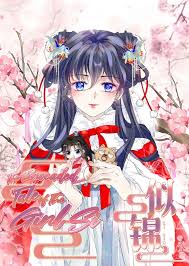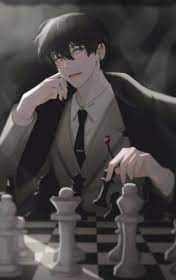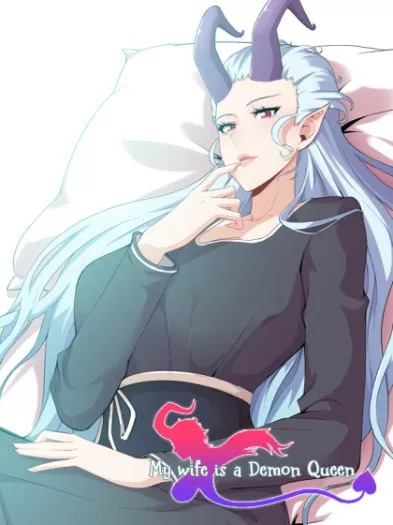The Story in 3 Sentences
Jiang Si, a noblewoman famed for her beauty but cursed by fate, dies in disgrace after being destroyed by betrayal, only to awaken fifteen years in the past with full memory of every wound, every lie, and every soul who sold her out.
This time, she won’t weep, she won’t submit—she will play the game of court intrigue with a mind sharpened by suffering, using grace as a weapon and silence as a threat, turning the very society that crushed her into a board where she now holds all the pieces.
From the ashes of a tragic engagement to the depths of supernatural secrets and royal conspiracies, Jiang Si reclaims her life not through brute force, but through strategy, foresight, and an unbreakable will to never be a victim again.
Why It Stands Out
1. The Chessmaster in Silk Robes
Jiang Si doesn’t scream for vengeance—she plans it. Her brilliance lies not in sudden power-ups or magical dominance, but in her ability to manipulate perception, exploit weaknesses, and turn enemies against each other with a whisper. She weaponizes her reputation as a fragile beauty, letting her foes underestimate her until it’s too late. This isn’t just revenge—it’s psychological warfare wrapped in elegance. Fans are captivated by how she dismantles entire family schemes with a single well-placed rumor or a perfectly timed silence, proving that in a world where women are expected to be seen and not heard, the quietest voice can be the most dangerous.
2. A Past That Haunts Like a Ghost
The comic masterfully blends historical drama with subtle supernatural elements, creating an atmosphere where fate feels tangible. Visions, omens, and unexplained occurrences suggest that Jiang Si’s return isn’t just luck—it might be destiny intervening. These touches don’t overpower the narrative; they deepen it, making the audience question: Is she changing fate, or fulfilling it? The mystery of why she was sent back lingers beneath every decision, adding a layer of existential tension to the court politics and romantic entanglements. It’s a ghost story where the ghost is the protagonist’s former self, whispering warnings from the grave.
3. Family as the True Battlefield
More than any suitor or rival, it’s Jiang Si’s own family that cuts the deepest. Greed, jealousy, and misplaced loyalty turn blood ties into traps. Her relatives aren’t cartoonish villains—they’re people with motives, fears, and justifications, making their betrayals more painful and her victories more complex. The story doesn’t just show how society oppresses women; it shows how families internalize and enforce those systems. Jiang Si’s fight isn’t just for survival—it’s for autonomy from the very people who should have protected her. This emotional realism elevates the comic from palace drama to a profound exploration of power, loyalty, and the cost of self-liberation.
Characters That Leave a Mark
There’s the First Husband – not a one-dimensional villain, but a man broken by lost love, whose hatred for Jiang Si stems from grief and manipulation, making his role a tragic counterpoint to her rise.
You’ll meet the Second Husband, whose affection is real but poisoned by perception—he sees Jiang Si as a replacement, not a rebirth, creating a romance built on intimacy and profound misunderstanding.
Then there’s Lady Jiang, not just a cold mother, but a woman shaped by the same patriarchal system, enforcing cruelty in the name of survival, embodying how oppression is often passed down by those who suffered it first.
And Younger Brother Xiao Lang? He’s the one who starts as a pawn in the family’s schemes but slowly awakens to the truth, representing the possibility of change—even in the most corrupted bloodlines.
The Flaws Fans Debate
Some arcs lean into familiar rebirth tropes—predictable betrayals, the “beauty scorned” narrative—which can feel formulaic to readers well-versed in gender-bender historical dramas.
Pacing fluctuates between slow-burn political maneuvering and sudden, high-stakes confrontations, making the narrative rhythm uneven for those who prefer consistent tension.
While the supernatural elements add intrigue, they remain underdeveloped for some fans, feeling more like flavor than a core mechanic, leaving questions unanswered by the finale.
A few readers note that the art style, while elegant, sometimes lacks emotional expressiveness in key moments, diluting the impact of intense scenes.
Must-Experience Arcs
Ch. 1–120: The Rebirth and First Moves – Jiang Si awakens in her fifteen-year-old body, recalibrates her strategy, avoids early pitfalls, and begins laying the groundwork for her transformation, all while maintaining the mask of the obedient daughter.
Ch. 121–280: The Web of Court and Family – Diplomatic marriages, secret alliances, and romantic entanglements escalate as Jiang Si navigates the Anguo Mansion and her own family’s schemes, turning every social event into a battlefield of wits.
Ch. 281–399+: The Fall of the Old Order – Long-buried truths surface, supernatural hints converge, and Jiang Si confronts her final enemies, not with violence, but with exposure, justice, and the quiet triumph of a woman who finally owns her fate.
Killer Quotes
“Everyone said that the Fourth Miss of the Jiang family is a first-class beauty, but it was a pity that the Duke Anguo Mansion picked this flower.”
“A super smart female lead shall turn all of her misfortune around!”
“Those who have harmed her or done her injustice, she will get retribution on all of them!”
“Now reborn again back to her past, she pledges to keep her fate firmly in hand!”
“If you think a gentle heart means a weak will, you’ve already lost the game.”
Cultural Impact
The phrase “Fourth Miss Jiang” has become a symbol in fan communities for the underestimated woman who rises through intelligence, not power.
Fan art frequently contrasts Jiang Si’s two lives—fragile bride in white versus regal strategist in brocade—highlighting the visual and emotional transformation.
Discussions on Reddit and Asian drama forums often compare her journey to real historical constraints on women, praising the comic for addressing systemic oppression without fantasy escapism.
The comic’s success has inspired similar works where rebirth isn’t about romance or wealth, but about correcting familial and societal wrongs through strategic brilliance.
Final Verdict
Start Here If You Want:
A historical revenge story where the heroine wins not with magic or armies, but with her mind and memory.
A romance that questions whether love can exist when one person is living a second life and the other remembers nothing.
A narrative that treats family not as sanctuary, but as the most dangerous arena of all.
Study If You Love:
Female leads who grow through trauma but never lose their composure.
Stories where every glance, gift, or rumor is a calculated move in a larger game.
Historical dramas that blend realism with just enough mystery to make fate feel alive.
Avoid If You Prefer:
Fast-paced action or martial dominance—this is a war of words, not swords.
Simple love stories with instant trust and emotional transparency.
Supernatural systems that are fully explained—here, the mystical remains subtle, haunting, and unresolved.





